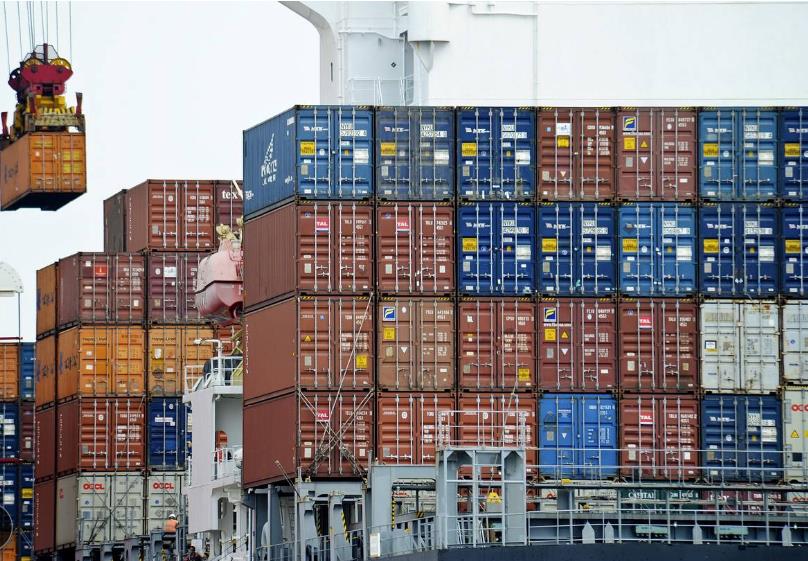Media Report

- The Wall Street Journal reports: "President-elect Donald Trump's talk of punitive tariffs on Chinese goods has put the trade world on edge. China's rising portion of grants and subsidies in industrial profits—its own form of protectionism—may only add to the tension...While Mr. Trump has concentrated on China's currency, subsidies are another way that governments can push down the price of their goods on the export market. If large enough, they could even ameliorate the effects of possible tariffs...China has talked about reforming the hand of the state and 'marketizing' subsidies so they are less about doling out cash and more about responding to market incentives. But there is little talk of reducing them. Should Mr. Trump follow through on promises to turn the U.S. inward, Beijing will likely continue to help its companies the same way it always has—and perhaps even more."
- Reuters reports: "Chinese President Xi Jinping on Wednesday called for greater cooperation among nations in developing and governing the internet, while reiterating the need to respect so-called 'cyber sovereignty.'...'The development of the internet knows no international boundaries. The sound use, development and governance of the internet thus calls for closer cooperation,' Xi said in a video message at the start of China's third World Internet Conference. While China's influence in global technology has grown, its ruling Communist Party led by Xi has presided over broader and more vigorous efforts to control, and often censor, the flow of information online...China hopes to cooperate with other countries to develop international rules and standards for the internet 'in a more balanced way', said Liu, a member of the Party's leading Politburo Standing Committee."
- The Washington Post reports: "In a remote valley near the Arctic Circle where the wind whips the coarse yellow grass, China and Iceland are preparing to look to the sky — and a shared future. Construction workers are building a research facility to study the Northern Lights, whose spectacular streaks of color light up Iceland's winter skies. Funded by China's Polar Research Institute, the facility will house Chinese, Icelandic and international scientists when it opens next year...Scientists hope the observatory will help them learn about the interaction between the sun and the Earth's magnetic field, which could help predict space weather...'Now you might hear someone say, 'They will never finish it' — not that they are spying on us or doing something totally different from what is said to be done,' [Reinhard Reynisson, director of the nonprofit company building the Aurora Observatory] said. 'Why build a station here in the valley to spy on us? Much easier to rearrange some of their satellites to spy on us.' "
Calendar
- 2016-11-15 U.S. Workers to Lose in China Trade War
- 2016-11-14 Trump and Chinese President Hold Cordial First Phone Call
- 2016-11-13 Chinese Coaches Hone Their Skills in America
- 2016-11-11 Who Wins a Trade War? China
- 2016-11-10 Donald Trump is a mixed blessing for Chinese leaders
- 2016-11-09 In Trump Win, China Hopes for U.S. Retreat
- 2016-11-08 The Latest: US Upset Over China's Hong Kong Intervention
- 2016-11-07 The coming clash with China over North Korea
- 2016-11-06 China Says Two Elected Hong Kong Lawmakers Can't Retake Oaths
- 2016-11-04 China’s Wanda Group to Buy Dick Clark Productions for About $1 Billion
News
- The Wall Street Journal In Trump's China, Industrial Subsidies Loom Large
- Reuters China's Xi urges cooperation among nations in governance of global internet
- The Washington Post China's Arctic ambitions take shape in remote Iceland valley
- The Wall Street Journal Is China a Currency Manipulator? Data Say No
- Reuters U.S. panel urges probe on whether China weakening U.S. militarily
- BBC China's most-wanted economic fugitive Yang Xiuzhu surrenders
- The Financial Times Xi Jinping pushes China's vision for the worldwide web
- The New York Times 'We Have a Fake Election': China Disrupts Local Campaigns
- Reuters China websites block searches for 'Fatty Kim the Third'
- The Financial Times Australia snubs US by backing China push for Asian trade deal
- The New York Times In China, Toilets Have Trump's Name Without His Permission
- BBC China 'will still invest in Scotland'
- The Associated Press Despite Lippi, China's World Cup dreams still fading
Commentary
- Council on Foreign Relations China, Manipulation, Day One, the 1988 Trade Act, and the Bennet Amendment
- Quartz Former US president George W. Bush is urging Americans not to give up on free trade
- The New York Times: Sinosphere Xi Jinping Wants to Be 'Comrade.' For Gay Chinese, That Means Something Else.
- The Diplomat In China, a Tale of Two Plenums: 'Core Leader' Vs. Collective Leadership
- The Washington Post: Monkey Cage Is China ready to budge on the South China Sea? Here's why compromise is possible.
- The New York Times: Sinosphere Finding a Rich Vein of Humor in China's Past
- Quartz China's central bank is hiring blockchain experts to help it kill off cash
- The Diplomat How Important Is Latin America on China's Foreign Policy Agenda?
